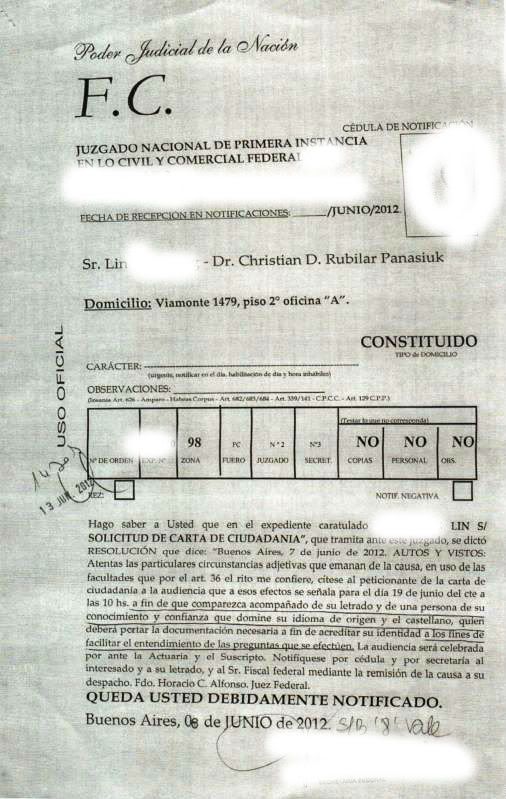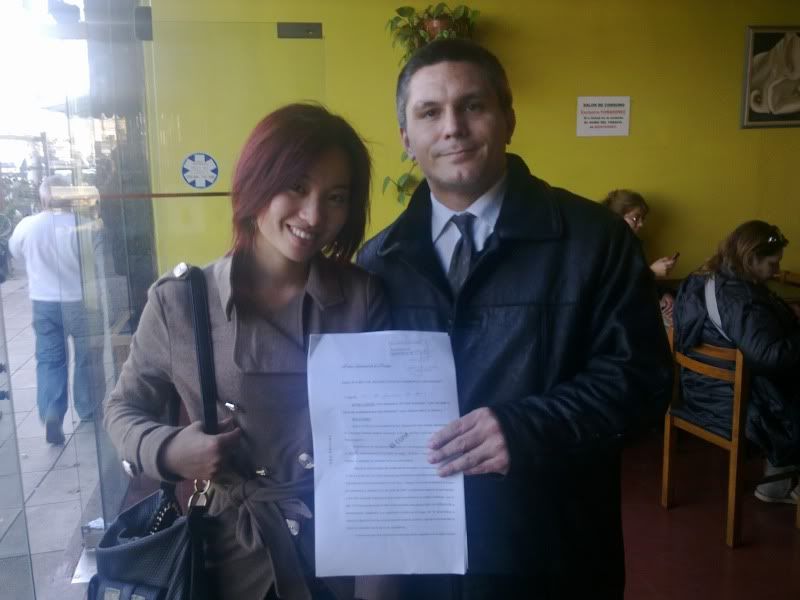Yes, I do understand that this thread is about Argentine citizenship. But I had a question related to this vis -a - vis as to the advantages of holding Argentine citizenship.
Does Argentine citizenship ( not by BIRTH) but via all what we have been discussing on this thread, entitle one to legally work in Brazil or Chile?
I have some sub questions pertaining to this. It will be awesome if we could discuss answers to these basis your experience.
1. If one is a Argentine citizen by naturalization ..and enters Brazil ( visa free basis the citizenship)...can he/she perform work in Brazil? or at least short term work for few days. Of course implications of taxes etc set in. But my query is about short term work lasting 2-4 days.
2. If one is a Argentine citizen citizen by naturalization, can one apply for permanent residency in Brazil/Chile?
My doubts came from reading some conflicting articles on the internet.
aa)
http://en.wikipedia.org/wiki/Union_of_South_American_Nations
Quote "Eligible citizens of the Mercosur member countries (Argentina, Paraguay, and Uruguay) and two Mercosur "associated countries" (Chile and Bolivia) can now apply for a special two-year temporary residency program in Brazil using a simplified application process. The new program was introduced by a government decree published on 8 October 2009, but administrative delays prevented the new program from being implemented until now.
Under the new program, natural-born citizens of these countries, or individuals who have held citizenship in these countries for at ""least five years"", plus their legal dependents (regardless of nationality), may obtain temporary residency status in Brazil that will remain valid for two years. The temporary residency program is not linked to a specific employer, and from an immigration perspective, these residents are eligible to work for any employer in Brazil. After the first two years, the candidate is eligible for permanent residency." unquote
bb)
http://en.wikipedia.org/wiki/Mercosur
Quote "The commitment by the member states to make the necessary adjustments to their laws in pertinent areas to allow for the strengthening of the integration process. The Asunción Treaty is based on the doctrine of the reciprocal rights and obligations of the member states. Mercosur initially targeted free-trade zones, then customunification, and finally a common market. The common market will allow (in addition to customs unification) the"" free movement of manpower"" and capital across the member nations, and depends the grating of equal rights and duties to all member countries. " unquote




